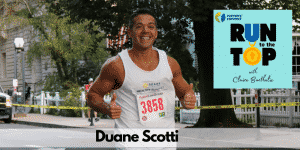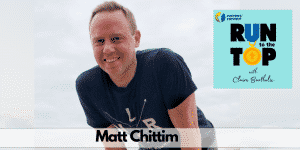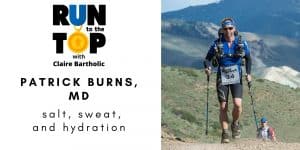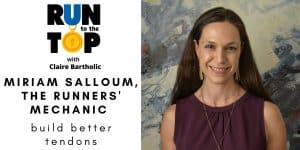On today’s episode of Runner’s Connect, I’m speaking with Dr. Inigo San Millan, the Director of Exercise Physiology at the University of Colorado and a professional speaker on the topics of sports medicine, metabolic disorders and other types of health and performance issues.
Today, we are discussing exercise and carbohydrates. Nowadays, so many of our health, weight and performance issues are blamed on carbs. Dr. San Millan assures us, however, that carbohydrates are not to blame for all of our woes.
As a former athlete, having played for six years with Real Madrid soccer and having been a cyclist for two years, Dr. San Millan has the perspective of both a sports medicine expert and an athlete.
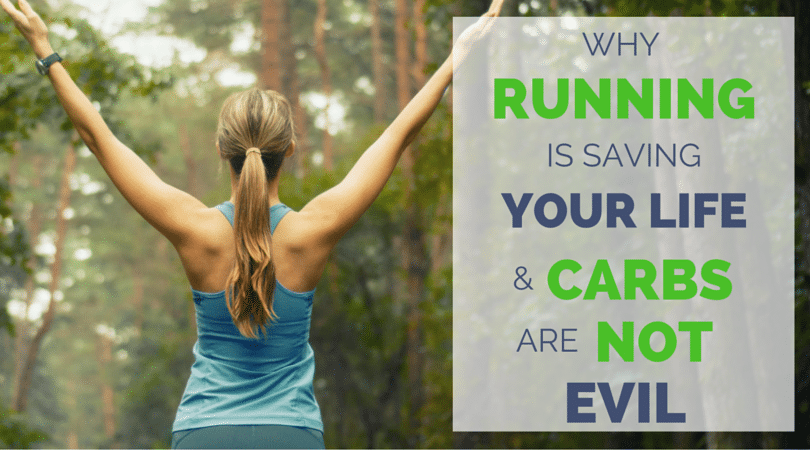
Some of the topics that you’ll hear us discuss include:
- Overtraining in the casual or recreational athlete. Dr. San Millan goes over the signs of overtraining, the biomarkers present, and the dangers of not knowing how to recover from strenuous exercise.
- How the mitochondria, carbohydrates and insulin work together in the prevention and formation of type II diabetes, heart diseases, and other metabolic conditions.
- How physical activity improves metabolic flexibility.
- Why elite athletes can generally eat anything they want without gaining weight.
- Why heavy carbohydrate consumption prior to a workout is not necessary, and why sports drinks are not necessarily good for athletes.
- San Millan’s thoughts on high-fat, low-carb diets.
- How exercise can prevent a wide variety of metabolic diseases.
Questions Dr. San Millan is asked:
2:50: Where are you from, and how did you end up where you are?
4:18: If you could go back, could you have been a better athlete, knowing what you know now?
5:30: Did your troubles with training spark your interest in physiology?
7:20: What are your findings about overtraining?
10:30: How can casual exercisers be overtrained?
12:10: What symptoms indicate overtraining?
15:00: What biomarkers can people look for if they think they are overtraining?
19:45: What are your thoughts on dieting and the weight loss industry?
24:55: If someone is physically active, can they eat whatever they want?
32:40: What are your thoughts on high-fat, low-carb diets?
41:50: Can people who are diabetic turn things around by exercising?
47:25: If you have an active job, is that sufficient?
50:25: Can type 1 diabetics be elite athletes?
53:35: Where do you see your research going in the future?
Quotes by Dr. San Millan:
“I never got to be at the top level of any sports, so I find myself as a frustrated and truncated professional athlete.
“The way that elite athletes work and train is at a completely different extreme than how recreational athletes train.”
“Carbohydrates haven’t been sent ten years ago by aliens to exterminate humankind.”
“People work 50 hours per week, they don’t know how to recover, how to sleep well, and how to eat. Then they restrict nutrition — particularly carbohydrates. It’s the perfect storm.”
“Exercise is medicine – the only thing that can improve mitochondrial function is exercise.”
“There’s not one body of research that shows that carbohydrates are bad for performance.”
“At the end of the day, when it comes to energy purposes, if you have a Coke or a sports drink, your body will utilize what it needs.”
“The most powerful [cause of] epigenetics is exercise. It is at least as efficient as medications for the treatment of metabolic diseases.”
“The immense majority of type 2 diabetes is acquired. People who exercise regularly should be protected.”
“Twenty to eighty percent of cancer and fifty percent of Alzheimer’s can be prevented with regular exercise.”
“The key element is to individualize exercise programs for each individual.”
“The societies who live the longest and have the lowest incidence of heart disease, cancer and early death are the Mediterranean cultures and the Japanese. They eat well, and they eat carbohydrates…. They also move. They walk to work, and they walk to the train station.”
[bctt tweet=”Carbs were not sent by aliens to exterminate humankind. Interesting podcast from @runners_connect” via=”no”]
We really hope you’ve enjoyed this episode of Run to the Top. Please consider giving us a review on iTunes by clicking THIS link. You can follow this YouTube Video of a Demonstration of How to Leave a Review. Thank you in advance.
Take a Listen on Your Next Run
Links and Resources:
David Alley’s Race Around Australia (last week’s podcast)
Winning the Battle Against Metabolic Disorders (TED Talks)
Juvenile Diabetes Research Foundation
Colorado University Sports Medicine and Performance Center
Born to Run by Christopher McDougall (also listen to our podcast episode with Christopher!)
Are You on the Verge of Overtraining?
How Quickly Can You Recover from Overtraining?
Runtasic Orbit (activity tracker)
Thank you so much for tuning in. Remember you can always email me
tina@runnersconnect.net
if you have any suggestions, feedback, or guests you would like to hear from.
Can I ask you a HUGE favor please? Would you be able to review the podcast on iTunes to help Run to the Top move up the rankings…..so we can bring on more of those running celebrities and influencers?
It can be confusing. Here is a video for the computer https://www.youtube.com/embed/XdWeIF6gu3Y?vq=hd1080
As for the iPhone…..
- Go onto the podcast app
- Search for the Runners Connect podcast in the search bar (bottom right)
- Select the podcast
- There will be 3 tabs, the middle one says Reviews, click that
- It will say “Write a Review”
Thank you SO much!
Next week, we will be talking to Ellie Greenwood. You won’t wanna miss this!




